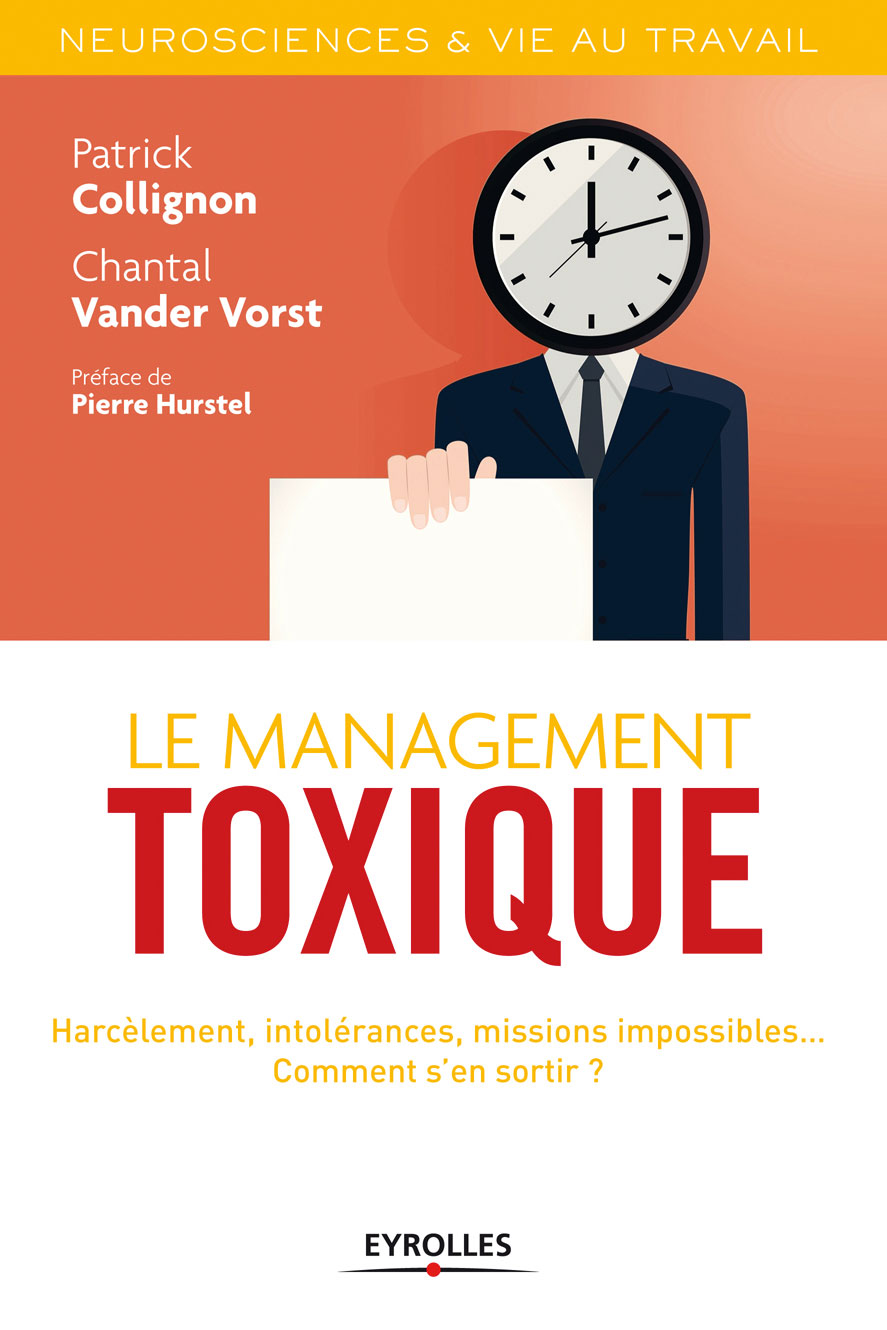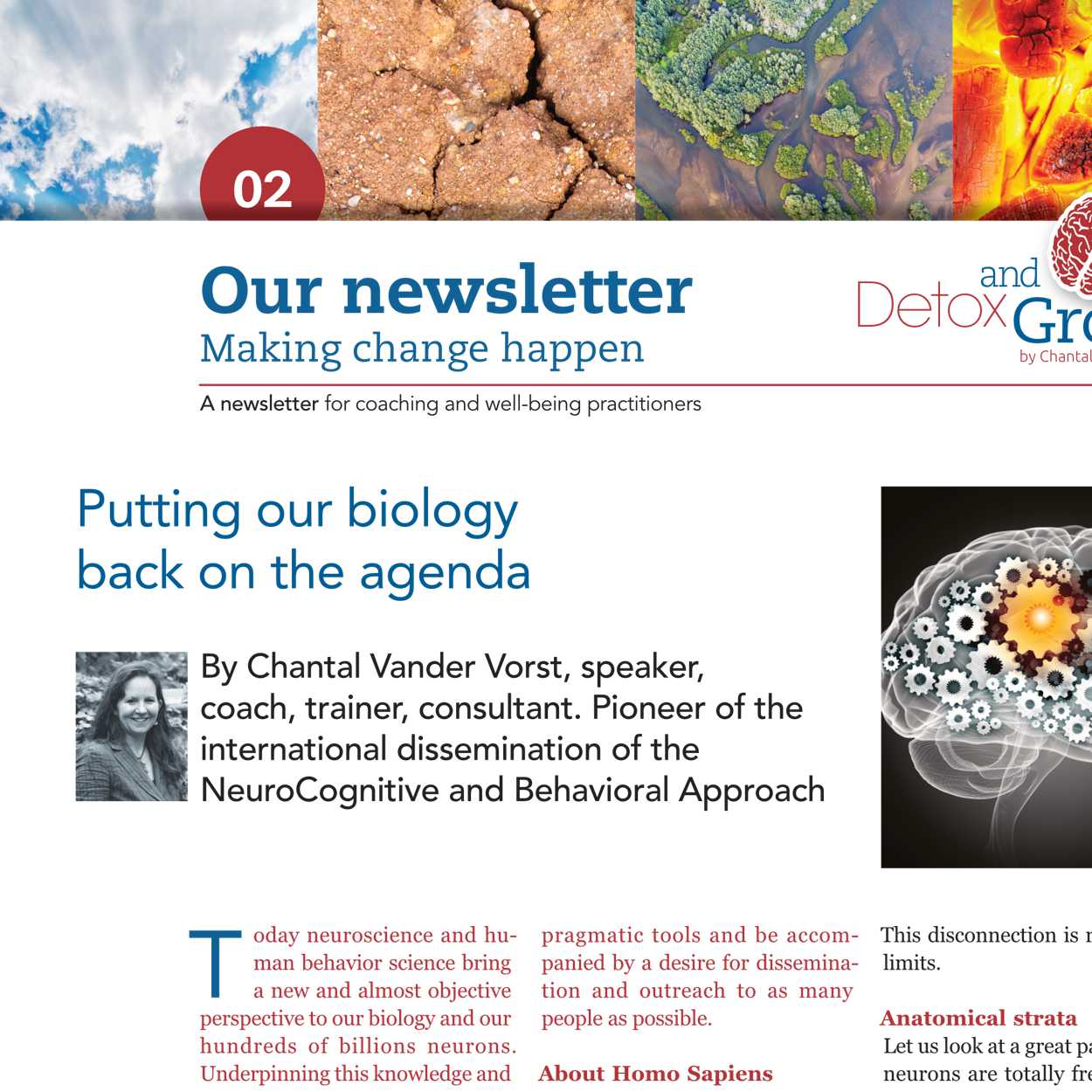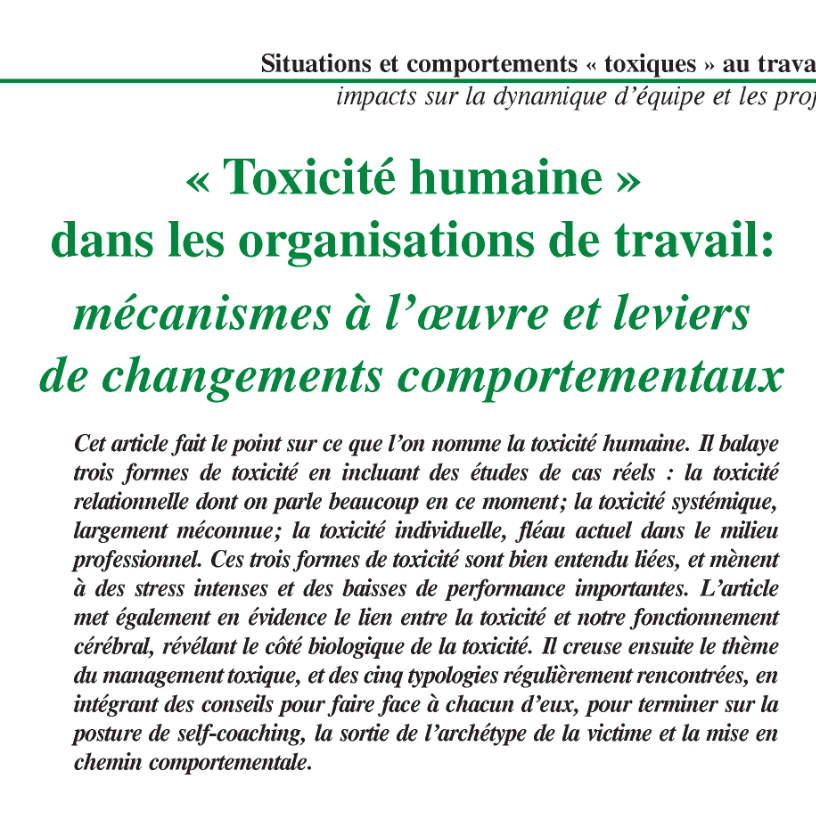Publications
In the media…
Chantal Vander Vorst regularly appears in the media in different countries. Here are some examples:
Open letter to Charles Darwin: The Art of Resilience
Newsletter #02
The Power to Thrive
Making change happen #04
Putting our biology back on the agenda
Newsletter 10/2019
Freeing our neurons
Newsletter #01
Resilience and Neuroscience
Newsletter 01/2020
Rethinking the school system through the pandemic: our mental modes.
Making change happen #01
Quand la pandémie requestionne le système scolaire : développer les talents
Faire bouger le monde ! n°02
Quand la pandémie requestionne le système scolaire, opus 3
Faire bouger le monde ! n°03
J'apprivoise mon chef
Femme d’aujourd’hui, June 2020
Le NeuroManagement
Il n’y a pas de bon stress au travail
Le coaching vu par l’Approche NeuroCognitive et Comportementale
Pack Aventure, voyage en terre connue
Contourner les comportements toxiques en entreprise. Garde-fous.
Comment gérer un manager toxique
Êtes-vous victime de management toxique?
"Toxicité humaine" dans les organisations de travail
Mécanismes à l’œuvre et leviers de changements comportementaux
Les Cahiers de l’Actif – N°510/511
Also…
L’intuition dans l’entreprise, et si ça marchait. HR magazine (Belgium)
Le Management toxique, Bilan (Switzerland)

Le management toxique
Chantal Vander Vorst co-wrote with Patrick Collignon a book called Le Management toxique [Toxic Management] published by Eyrolles in 2013.
We are all potential sources of toxicity to others and to ourselves, and we all have a darker side. Each of us can be a cause or a victim, and more often than not, if we are not vigilant enough, the toxicity will spread and it will be the whole system that can become harmful and counter-productive. Bringing this taboo to light, in full disclosure, naming it, understanding it, is a fundamental first step towards addressing it.
Management becomes toxic when it incapacitates a person from carrying out their tasks and missions or subjects them to additional and harmful emotional pressure over time. Whether it is due to complicated relationships or structural dysfunctions, this type of management has repercussions on the daily lives of the people it targets.
In this book, we offer solutions to implement self-coaching actions, make commitments towards oneself in order to level out of it in a sustainable way.




















